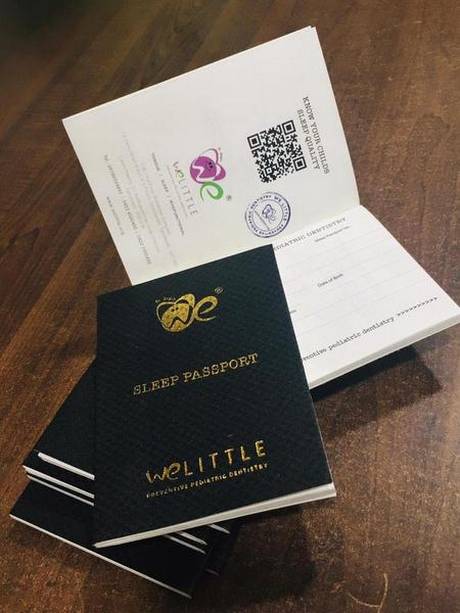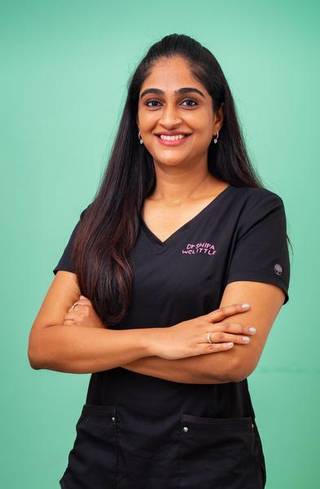Coimbatore, TAMIL NADU :
A booklet by Coimbatore-based paediatric dentistry team We Little throws light on the mouth-sleep connection

Dr Shifa Shamsudeen has been blogging about the connection between problems in the oral cavity and sleep for five years now. As a paediatric dentist, she has seen misaligned jaw lines and under-developed tongues that cause the airways to narrow. While earlier, these problems were thought to be only genetic, today, research says that a number of oral cavity problems in children are a result of poor lifestyle habits, such as bottle feeding, and infections, like recurring inflamed adenoids.
“All these can lead to narrowing of the airway. When a child is not getting enough oxygen during sleep, the tissues, including the brain are not getting rest. As a result the child becomes lethargic during the day,” says Dr Kunal Gupta, pediatric dentist at Children’s Dental Center in Gurugram. A wider airway leads to better breathing and a deeper sleep. Mouth breathing alters jaw lines causing a short chin, which leads to an asymmetrical face and issues such as speech, breathing, and gum problems.

Dr Shamsudeen and her team at We Little that works on children’s teeth in Coimbatore, have brought out what they call a sleep passport — a booklet for parents and children that gives pointers on a healthy sleep routine from infancy to 18 years. It provides a pictorial description of low quality sleep, and highlights the symptoms, causes, and effects of mouth breathing and sleep disordered breathing (SDB), an upper airway dysfunction.
Her message is that many problems with the mouth that result in poor sleep can be prevented. They can also be solved early, with myofunctional therapy. “This involves breath, muscle and sleep re-training exercises,” she says. An example of this is to place the tongue behind the upper front teeth without touching the teeth for 10 seconds. There are many more in the ‘passport’.
Lifestyle choices
Malocclusion (misalignment) of teeth in children is a symptom that something is not functioning in harmony. This used to be mechanically corrected with braces when the child turned 14, but can now be tackled much earlier.
Today dentists understand that for a majority of children, narrow jaws and crowded teeth are induced by lifestyle. “Bottle feeding, the use of pacifiers and thumb sucking can make the tongue muscles weak. It narrows the nasal airway, thereby leading to mouth breathing that induces low quality of sleep,” says Dr Shamsudeen. To prevent this, it is best to breastfeed, avoid the use of pacifiers and try and break your baby’s thumb sucking habit. “Breastfeeding sets the foundation for well-defined facial and jaw growth,” says Dr Shamsudeen.
Timely medical attention
SDB is a result of an improper tongue position, causing difficulties while breathing, says Dr Uma Nagarajan, chief paediatric dentist at Pedo Planet Children’s Dental Center in Delhi. “When a child snores or wakes up with a sudden gasping sound at night or while napping during the day, it is a symptom of SDB. The tongue at rest should be positioned in a way that the tip of the tongue rests on the roof of the mouth, even during sleep.”
“SDB is caused by recurring inflamed adenoids and tonsils, an enlarged tongue, or a narrow lower jaw because of habits like thumb-sucking and mouth breathing. It can have an impact on concentration and attention in the short term and growth in the long term, both because of lack of quality sleep,” adds Dr. Gupta.
If your child is not getting good quality sleep, and psychological factors are ruled out, it’s best to check whether there is a problem with the oral cavity.
To get a copy of the sleep passport, call 97869-29892
source: http://www.thehindu.com / The Hindu / Home> Sci-Tech> Health / by K Jeshi / Coimbatore – April 17th, 2021








